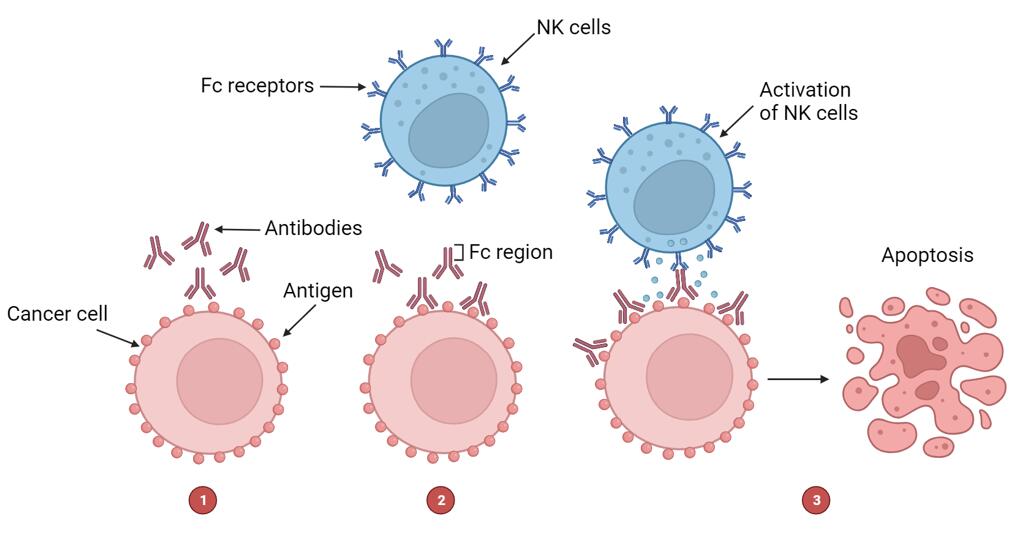Antibody-dependent cellular cytotoxicity (ADCC) is a mechanism of immune responses in which certain immune cells, such as natural killer (NK) cells and macrophages, use antibodies as a bridge to recognize and kill target cells. ADCC is an important immune defense mechanism against viral infections, cancer, and other diseases.
ADCC involves three main steps:
1. Recognition of Target Cells: This recognition is mediated by antibodies that bind to specific antigens on the surface of the target cells.
2. Binding of Effector Cells: Once the antibodies have bound to the target cells, the Fc (constant) region of the antibody molecule becomes accessible. Natural killer (NK) cells, a type of immune cell, have receptors on their surface that can recognize and bind to this Fc region. This binding brings the effector cell (such as the NK cell) into proximity with the target cell.
3. Cellular Destruction: After binding, the effector cell releases cytotoxic substances, such as perforin and granzymes, that induce apoptosis (programmed cell death) in the target cell.
 Figure 1. Illustration of the mechanism of ADCC
Figure 1. Illustration of the mechanism of ADCC
ADCC is a crucial defense mechanism against pathogens and cancer because it allows immune cells to specifically recognize and kill target cells, while minimizing damage to healthy cells. ADCC can be enhanced by therapeutic antibodies that are designed to have improved Fc receptor binding and activation properties. This has led to the development of ADCC-based immunotherapies, such as monoclonal antibody therapies, for the treatment of various diseases.
Creative Bioarray is a leading provider of ADCC assay services, offering comprehensive solutions for the evaluation of antibody efficacy in mediating cellular cytotoxicity. Our ADCC assays allow for the measurement of the ability of therapeutic antibodies to induce the killing of target cells by effector cells, such as natural killer (NK) cells or monocytes.
Our ADCC assays utilize various readouts to measure cytotoxicity, including flow cytometry, luminescence-based assays, and cell viability assays. We provide comprehensive data analysis and interpretation, helping clients to understand the potency and efficacy of their antibodies.
Online Inquiry